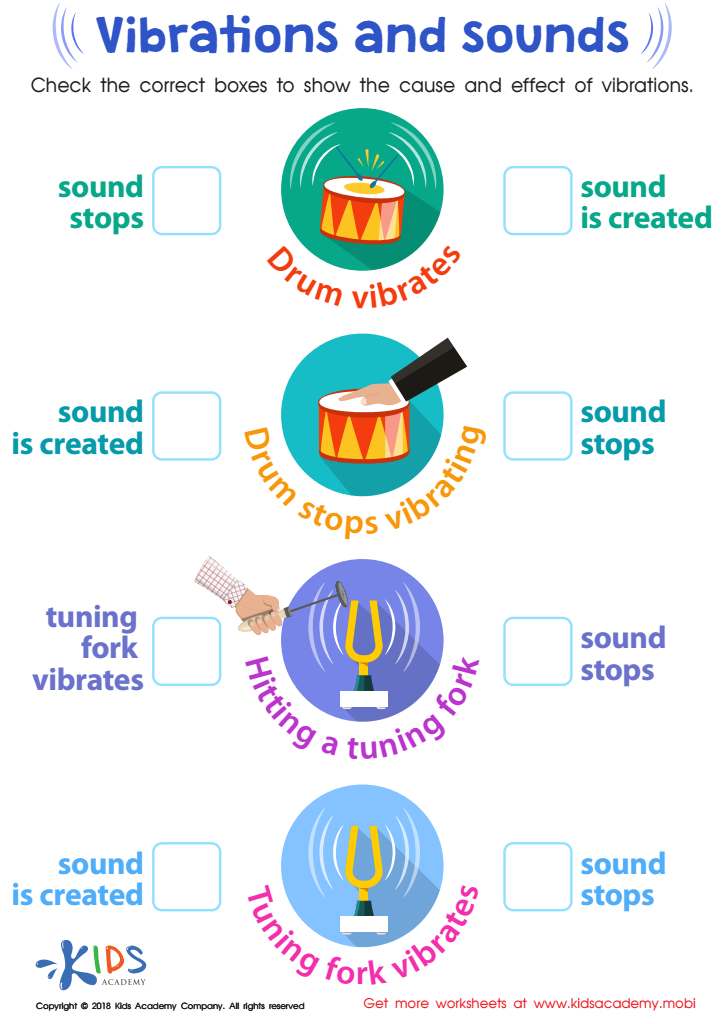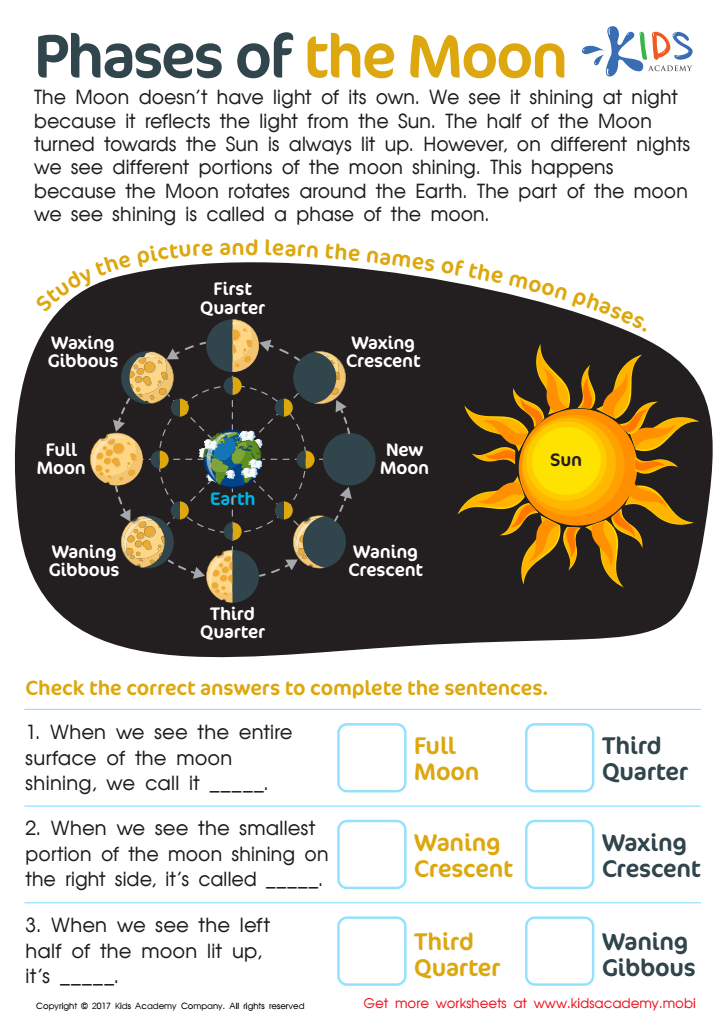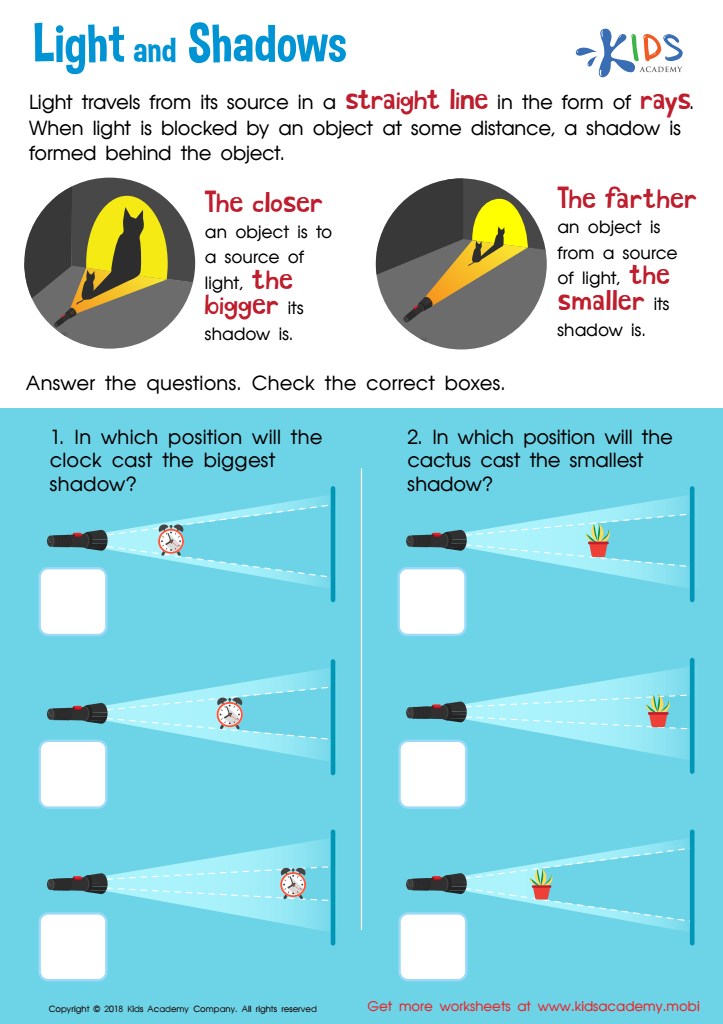Observational skills development Worksheets for Ages 6-8
3 filtered results
-
From - To
Boost your child's ability to pay attention to details with our engaging Observational Skills Development Worksheets designed for ages 6-8. These expertly crafted activities help youngsters sharpen their focus, enhance pattern recognition, and improve critical thinking, all while having fun! Our worksheets are ideal for both classroom and home settings, offering a variety of exercises such as finding differences, matching pairs, and solving visual puzzles. Watch as your child's cognitive skills flourish with each completed task. Give them the tools they need to succeed and explore our collection today for a brighter, more attentive tomorrow.


Vibrations and Sounds Worksheet


Phases of The Moon Worksheet


Light and Shadow Worksheet for Grade 3
Observational skills are foundational for children aged 6-8 as they form a crucial part of their cognitive development, and parents and teachers play essential roles in nurturing these skills. During these formative years, children are exceptionally curious and their brains are highly receptive to new information. By honing observational skills, children learn to notice details, differentiate between objects, and understand their environments more profoundly.
When parents and teachers emphasize these skills, they empower children to become better problem solvers and thinkers. For instance, a child with keen observational skills will be more adept at recognizing patterns in math, observing differences in a science experiment, or identifying characters’ emotions in a story. This enriched learning experience leads to higher academic performance and a deeper appreciation for subjects taught.
Furthermore, strong observational skills extend beyond the classroom; they enhance a child's social awareness and emotional intelligence. Children begin to pick up on social cues, understand non-verbal communication, and react appropriately in social situations, fostering better relationships with peers and adults.
In essence, by valuing and cultivating observational skills, parents and teachers lay a crucial foundation for lifelong learning, critical thinking, and effective interpersonal relationships, setting children on a path to both academic and personal success.

 Assign to the classroom
Assign to the classroom












